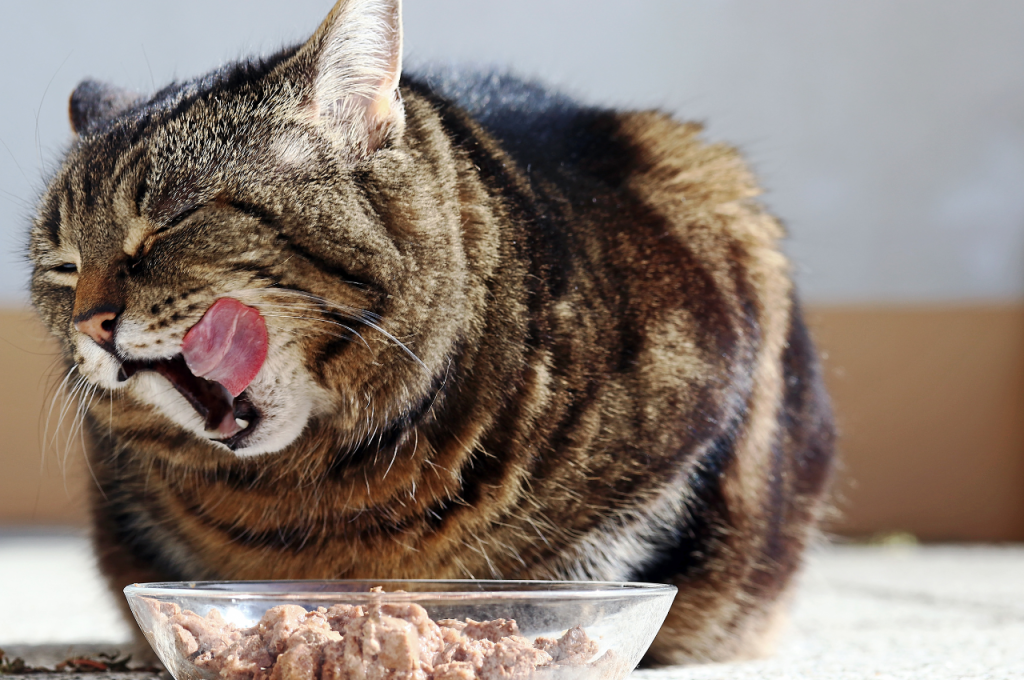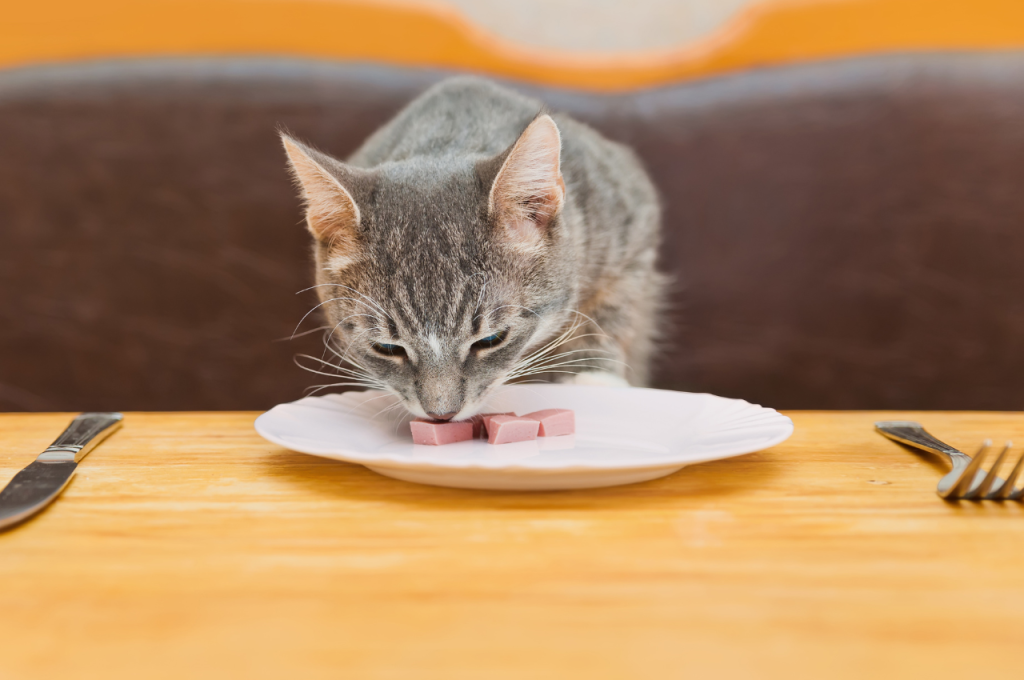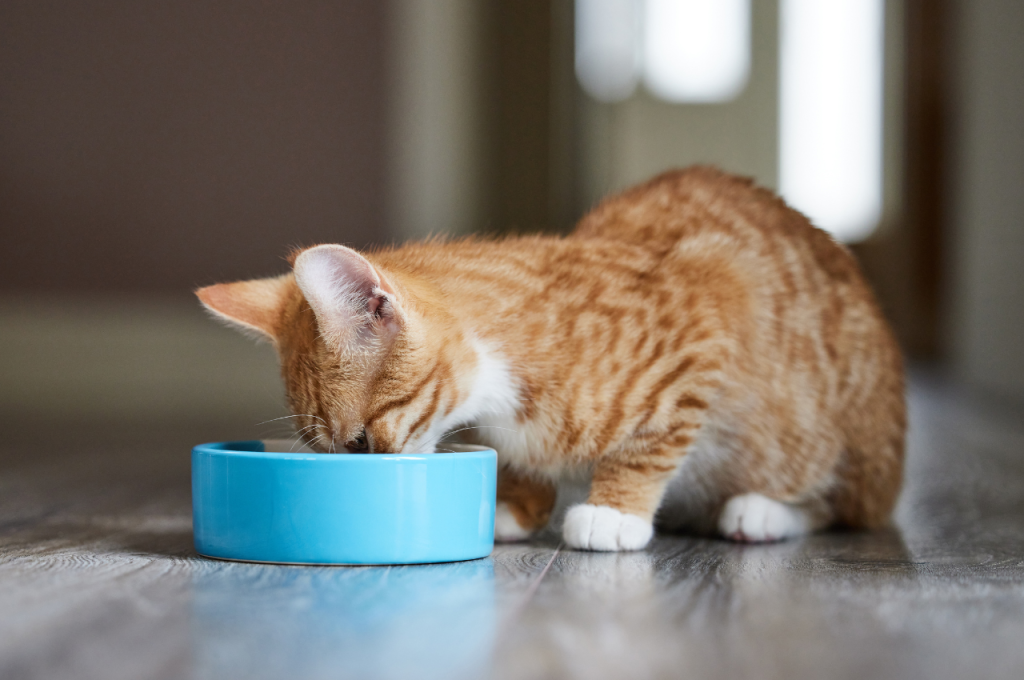Cats have a reputation for being finicky eaters, but did you know that certain foods can actually be harmful to their health? While they may be tempted to indulge in some human treats, like chocolate or onions, it’s important to know what cats can and cannot eat.
When it comes to their diet, cats are obligate carnivores, and their bodies are designed to primarily eat meat. This means that their digestive systems are not well-suited for processing certain foods like grains or vegetables. Cats require a diet that is rich in animal-based proteins and fats to meet their nutritional needs.
It’s important to know what cats can and cannot eat to ensure their health. Cats are obligate carnivores, meaning their diet should consist mostly of meat. They can safely consume lean meats like chicken and turkey. However, avoid feeding them raw or undercooked meat, as it may contain bacteria. Cats should also avoid certain foods like onions, garlic, chocolate, grapes, and raisins, as these can be toxic to them.
Understanding the Dietary Needs of Cats
Before diving into the specifics of what cats can and cannot eat, it’s important to understand the dietary needs of cats. Cats are obligate carnivores, meaning they require a diet rich in animal protein to thrive. Their bodies are designed to process and derive nutrients from animal tissues, and they have specific nutritional requirements that differ from other animals.

In addition to high protein content, cats also need essential amino acids like taurine and arginine, which are found predominantly in animal tissues. They also require certain vitamins and minerals, such as vitamin A, vitamin D, and calcium. Without these essential nutrients, cats can develop serious health issues.
Now that we have a basic understanding of a cat’s dietary needs, let’s explore what foods you can safely include in their diet and what foods you should avoid.
Safe Foods for Cats
When it comes to feeding your cat, it’s best to stick to a balanced and commercially prepared cat food that meets the Association of American Feed Control Officials (AAFCO) standards. However, there are also some human foods that cats can safely consume in moderation. These include:
- Cooked lean meats like chicken, turkey, and beef
- Cooked fish, such as salmon or tuna
- Small amounts of cooked eggs
- Plain, unsalted cooked rice
- Certain fruits, such as bananas or blueberries
- Certain vegetables, like cooked carrots or peas
When offering these foods to your cat, it’s important to remember a few key points:
- Ensure that the meat is fully cooked and free from any seasonings or sauces.
- Remove any bones from the meat to prevent choking hazards.
- Offer small portions and observe your cat’s response. If any digestive upset occurs, discontinue feeding the food.
It’s worth noting that while small amounts of certain fruits and vegetables are generally safe for cats, these should never make up the majority of their diet. Cats require meat-based proteins as the foundation of their diet to meet their nutritional needs.
Foods to Avoid
Now, let’s talk about the foods that are not safe for cats to eat. These foods can be toxic or harmful to their health, and it’s crucial to keep them out of their reach. The following foods should be avoided:

- Chocolate: Contains theobromine, which is toxic to cats and can cause symptoms like vomiting, diarrhea, rapid breathing, and even death.
- Caffeine: Found in coffee, tea, and certain sodas, caffeine can be highly toxic to cats and can cause restlessness, rapid breathing, tremors, and even heart palpitations.
- Onions and Garlic: These foods can damage a cat’s red blood cells, resulting in anemia.
- Grapes and Raisins: Can cause kidney failure in cats, leading to symptoms like lethargy, loss of appetite, and decreased urine production.
- Alcohol: Even small amounts of alcohol can be toxic to cats, causing severe central nervous system depression and even coma.
- Dairy Products: While cats may enjoy the taste of milk and other dairy products, most cats are lactose intolerant and can experience digestive upset like diarrhea.
This list is not exhaustive, and it’s important to be cautious about offering any human foods to your cat without consulting a veterinarian. Some seemingly harmless foods may have adverse effects on your cat’s health.
Special Considerations for Cats
Lastly, there are a few specific considerations for certain groups of cats:
Kittens
Kittens have different dietary needs than adult cats. They require a higher amount of certain nutrients, such as protein and fat, for their growth and development. It’s essential to provide them with a complete and balanced kitten food formulated specifically for their needs. Consult with a veterinarian for appropriate feeding guidelines.
Senior Cats
Senior cats may have unique nutritional requirements due to age-related changes in their bodies. They may benefit from specially formulated senior cat foods that support their joint health, immune function, and overall well-being.
Cats with Health Conditions
If your cat has any health conditions, such as kidney disease or food allergies, their dietary restrictions may be more specific. In these cases, it’s crucial to work closely with a veterinarian to determine the most appropriate diet for your cat’s specific condition.

Frequently Asked Questions
As a professional, I often receive questions about what cats can and cannot eat. It’s important to understand the dietary needs and restrictions of cats to ensure their health and well-being. Below, you’ll find answers to some frequently asked questions regarding what cats can and cannot eat.
Q. Can cats eat chocolate?
A. No, cats cannot eat chocolate. Chocolate contains theobromine, which is toxic to cats. Consuming chocolate can lead to symptoms such as vomiting, diarrhea, rapid breathing, increased heart rate, and even seizures. It is important to keep all chocolate products out of reach of cats to prevent accidental ingestion.
If you suspect that your cat has ingested chocolate, contact your veterinarian immediately for guidance. They may recommend inducing vomiting or other necessary treatments to prevent further complications.
Q. Is it safe for cats to eat onions and garlic?
A. No, it is not safe for cats to eat onions and garlic. These foods contain compounds that can cause damage to a cat’s red blood cells, leading to a condition called Heinz body anemia. Symptoms of onion or garlic toxicity in cats may include weakness, lethargy, pale gums, and decreased appetite.
If you suspect that your cat has ingested onions or garlic, it is important to seek veterinary care. The veterinarian may induce vomiting or recommend other treatments to mitigate the effects of the toxicity.
Q. Can cats have dairy products?
A. While cats may enjoy the taste of dairy products, it is not recommended to feed them to cats. Many cats are lactose intolerant, meaning they lack the necessary enzymes to properly digest lactose found in milk and other dairy products. Feeding cats dairy can lead to digestive upset, including diarrhea and stomach discomfort.
If you want to provide a treat for your cat similar to dairy, there are specially formulated lactose-free cat milk products available in pet stores that are safer for cats to consume.
Q. What fruits are safe for cats?
A. Some fruits are safe for cats to eat in small quantities. These include small portions of sliced apples, bananas, and watermelon without seeds or rind. However, it is important to remember that fruits should only be given as a treat and should not comprise a significant portion of a cat’s diet.
Always remove any seeds, pits, and peels before offering fruits to your cat. Additionally, it is crucial to introduce new foods gradually and monitor your cat for any signs of food intolerance or allergies.
Conclusion
Ensuring that your cat has a proper diet plays a significant role in their overall health and well-being. Understanding what cats can and cannot eat is vital for keeping them safe and thriving. Stick to a balanced and commercially prepared cat food that meets their nutritional needs, but don’t be afraid to offer small portions of cat-safe human foods as treats.
Remember to avoid toxic foods and consult with a veterinarian if you have any concerns or questions about your cat’s diet.
